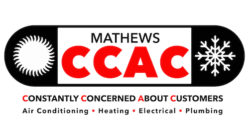Air filter efficiency affects the health of you and your loved ones, and contributes significantly to your level of home comfort by reducing allergens and contaminants that so often exacerbate common respiratory issues. In fact, air quality in the average home is several times more polluted than city air, which highlights the need for choosing the right filter.
It’s important to choose a filter that suits your needs. If occupants of your household suffer from respiratory issues such as asthma and allergies, you may want to install a medium-efficiency air filter designed to capture pollen, pet dander and mold while not excessively blocking airflow. Perhaps you want a high-efficiency filter designed to capture sneeze particulates, auto emissions (for homes with attached garages), insecticide dust, and even airborne bacteria and certain viruses that may be tracked into your home on clothing and shoes.
Whichever your goal, use the following tips as a learning tool for choosing the right air filter efficiency for your home:
- Initial efficiency is the capturing ability filters have when they’re new. Many filters actually improve their capturing rating as they accumulate contaminants. So the initial efficiency rating is not necessarily the filter’s highest rating over its cycle.
- Sustained efficiency is considered a more accurate assessment of an air filter’s rating, in contrast to initial efficiency. This rating is reliable for the cycle of the filter.
- MERV (minimum efficiency reporting value) ratings were developed by the American Society of Heating, Refrigerating and Air Conditioning Engineers to provide accurate contaminant-capturing capabilities of filters. However, MERV ratings should be used in conjunction with Sustained Efficiency ratings to understand the capturing quality of a filter. MERV ratings for residential uses run from 1 to 16, with 16 the highest air filter efficiency.
- Many manufacturers display package information such as pressure drop (sometimes called filter resistance). This is an excellent tool to use for determining a filter’s effect on HVAC efficiency. The greater the Pressure Drop, the more energy your HVAC consumes to circulate air. Most homeowners look for a happy medium between air-filtering ability and not impeding airflow through the system.
For more information or questions, call the indoor air quality experts in Corpus Christi at Mathews CCAC Inc, and we’ll be happy to help.
Our goal is to help educate our customers in Corpus Christi, Texas about energy and home comfort issues (specific to HVAC systems). For more information about air filter efficiency and other HVAC topics, download our free Home Comfort Resource guide.
Image courtesy of Shutterstock












